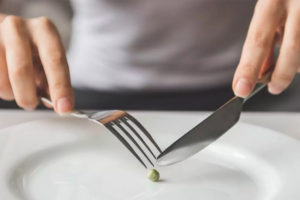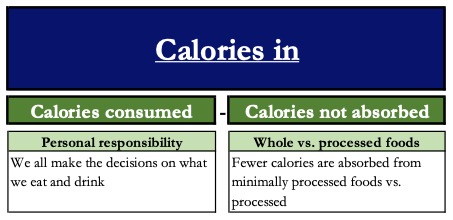 If I had to account for the individual things that it takes for a human to stay alive, it would be a pretty short list. Breathing, sleeping, eating, drinking water… that might be it. With a short list like this, it feels reasonable to assume that people would want to be doing these things well, especially if it meant they would be healthier. But, when we have a million other things to worry about, quick fixes become very attractive and guess what takes a backseat? Developing skills and habits that lead to permanent changes. This is the stuff that gets me excited. Writing that out I thought to myself, “no wonder my wife thinks I’m a weirdo.”
If I had to account for the individual things that it takes for a human to stay alive, it would be a pretty short list. Breathing, sleeping, eating, drinking water… that might be it. With a short list like this, it feels reasonable to assume that people would want to be doing these things well, especially if it meant they would be healthier. But, when we have a million other things to worry about, quick fixes become very attractive and guess what takes a backseat? Developing skills and habits that lead to permanent changes. This is the stuff that gets me excited. Writing that out I thought to myself, “no wonder my wife thinks I’m a weirdo.”
In a world full of diets that turn calories into the devil, it is understandable why drastically cutting calories and increasing exercise to burn calories would be the first response of many. The wonderfully attractive health and fitness “experts” pushing you in that direction doesn’t help either. When most people restrict calories, it is because they are looking to get healthier, but a misunderstanding of how the process of weight change works leads most people down the wrong path leading to weight loss followed by weight re-gain. Some people go through this process for their entire lives. How many people do you know who have lost the same 10-15lbs over and over again? How do we solve this problem? Developing realistic expectations to know when you are headed down the wrong path is a great start. Hint: if your first thought is to fast until dinner every day and add 3-5 hours of cardio per week, stop and ask yourself, “would I want someone I really deeply cared about doing this?” This is my attempt at helping you form more intelligent expectations when it comes to changing your body. Buckle up… let’s talk about calories.
Calories are just a measure of energy. One calorie is the amount of energy it takes to heat one gram of water to one degree Celsius. We then take that energy and use it to quantify the food and drink we consume and the amount of energy we use.
When “calories in” is equal to “calories out,” there will be no change to body fat stores. This is a fundamental truth that we cannot forget when we start to get into the nuance.
 Key points on Calories In:
Key points on Calories In:
- We as adults are responsible for the choices we make, especially when it comes to the foods and drinks we consume. This includes educating ourselves on the basics of nutrition so that we can make informed decisions.
- Protein, fat, carbohydrate, and alcohol make up our total caloric intake. By using these numbers, you can calculate daily calories.
- Protein – 4 Kcal/gram
- Carbohydrate – 4 Kcal/gram
- Fat – 9 Kcal/gram
- Alcohol – 7 Kcal/gram
- Not all calories are processed the same way. The more processed a food is, the more energy from that food we will absorb. Nuts are a great example. We will absorb fewer calories from almonds than almond butter. Cooking food has a similar effect as we absorb more calories from cooked foods than the same uncooked foods.
- There are many strategies to manage “calories in” whether you are looking to gain, lose, or maintain (to be discussed another time).
 Key points on Calories Out:
Key points on Calories Out:
- All categories above do not contribute equally to the total calories that we use.
- RMR is responsible for the largest portion (around 60%)
- It takes calories to digest calories (TEF).
- Whole foods require more calories to digest, absorb, and store than processed foods. This is one of the reasons whole foods are prioritized in many diets.
- Protein takes more energy to digest than other macronutrients.
- If you have ever gotten the meat sweats then you have felt this. The heat produced are the calories being used to aid digestion.
- Our bodies have a central governor (brain) that throttles some of these categories to conserve energy and maintain balance.
- If you reduce calories in order to lose weight and eat that calorie intake forever, you will eventually stop losing weight. The same goes for weight gain. This is your body making that adjustment and why there are plateaus in most diets.

Why do we need to understand this stuff?
Expectations are everything and to control your body weight successfully it takes reasonable expectations so that you do not get discouraged. After a diet, you are not done. The more severe a diet, the more drastic the reaction will be from your body. If you cut calories too fast for too long you cannot return to your normal life immediately when the diet is over. You have to understand that your body has made an adjustment based on the signal you had been sending it and can no longer handle the same number of calories. Diligence in the maintenance phase is just as important as the dieting phase and that is why developing skills and habits over the course of a diet are so important. The best way to avoid a weight rebound after a diet is to understand that you need to keep working after you reach your goal. I will say it over and over again: if you do not understand the fundamentals, you will not be able to set realistic expectations. When you want to get healthy and change the way you look the answer is almost never to crash diet or do anything extreme. The answer is usually the boring one that doesn’t sell: set realistic goals, start working out, start moving more, start eating more intelligently, and be open to learning. Add before you subtract.

[…] As discussed in a previous article, here is how bodyweight change occurs (see this blog for more detail): […]
[…] is an important variable to get a handle on in order to understand what changes should be made. In this past blog I go over the basics of the calorie equation and what makes up its the different […]